Everyone’s Buying These Pulse Oximeters — Here’s What They Don’t Know
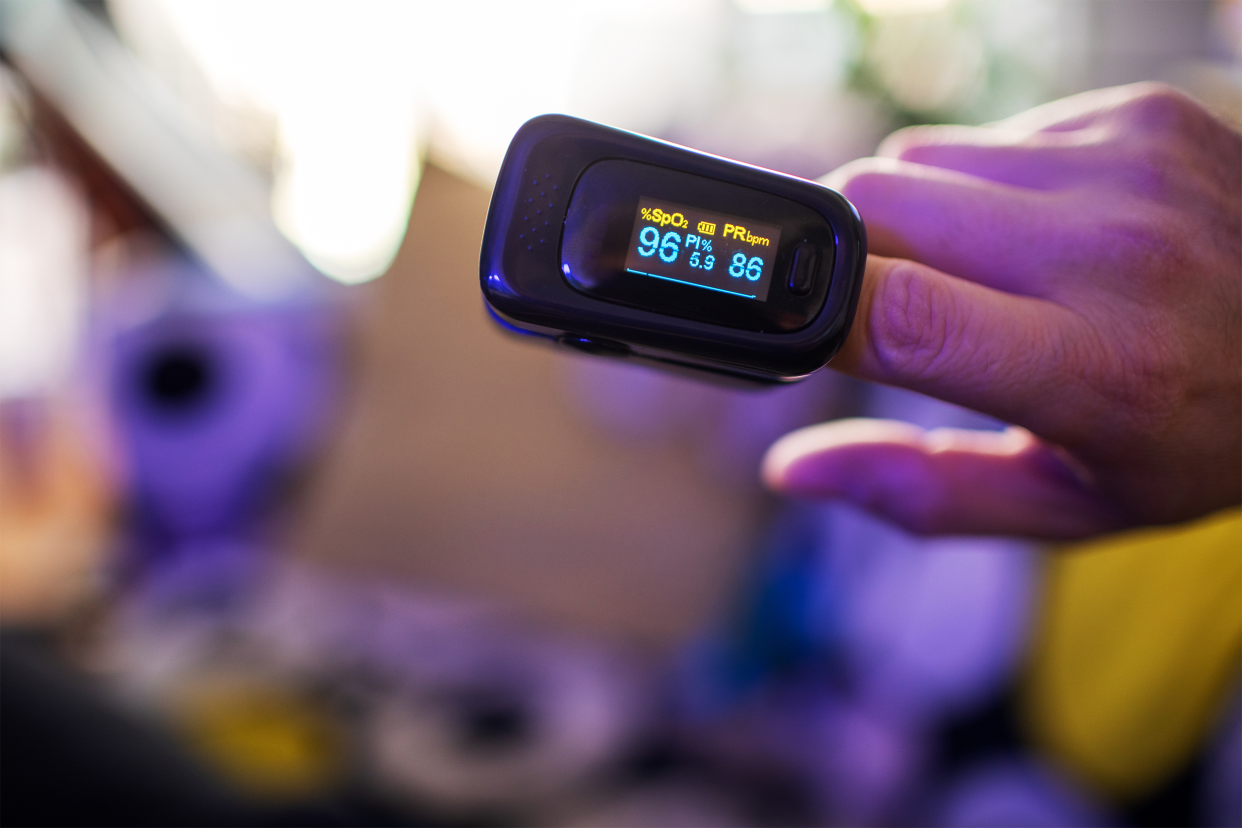
Breathing Easy
Add finger pulse oximeters to the list of things that have become suddenly scarce during the coronavirus pandemic, which has already changed our lives in myriad ways. Concerned consumers have been snapping them up, convinced that regular monitoring of their blood oxygen levels can detect silent hypoxia, a symptom of COVID-19. Although this sudden drop in the amount of oxygen in your bloodstream can indicate a coronavirus infection, the American Lung Association says this symptom usually doesn't manifest until an infected person has already become seriously ill. Fever, dry cough, muscle aches, and fatigue are much more common early indicators of COVID-19. Still, there can be peace of mind in knowing you're prepared in case you do get sick — you'll have a way to monitor your condition. Here are some recommended pulse oximeters and a few things to understand before buying.
Related: These Infrared Thermometers Can Check Temperatures Without Contact
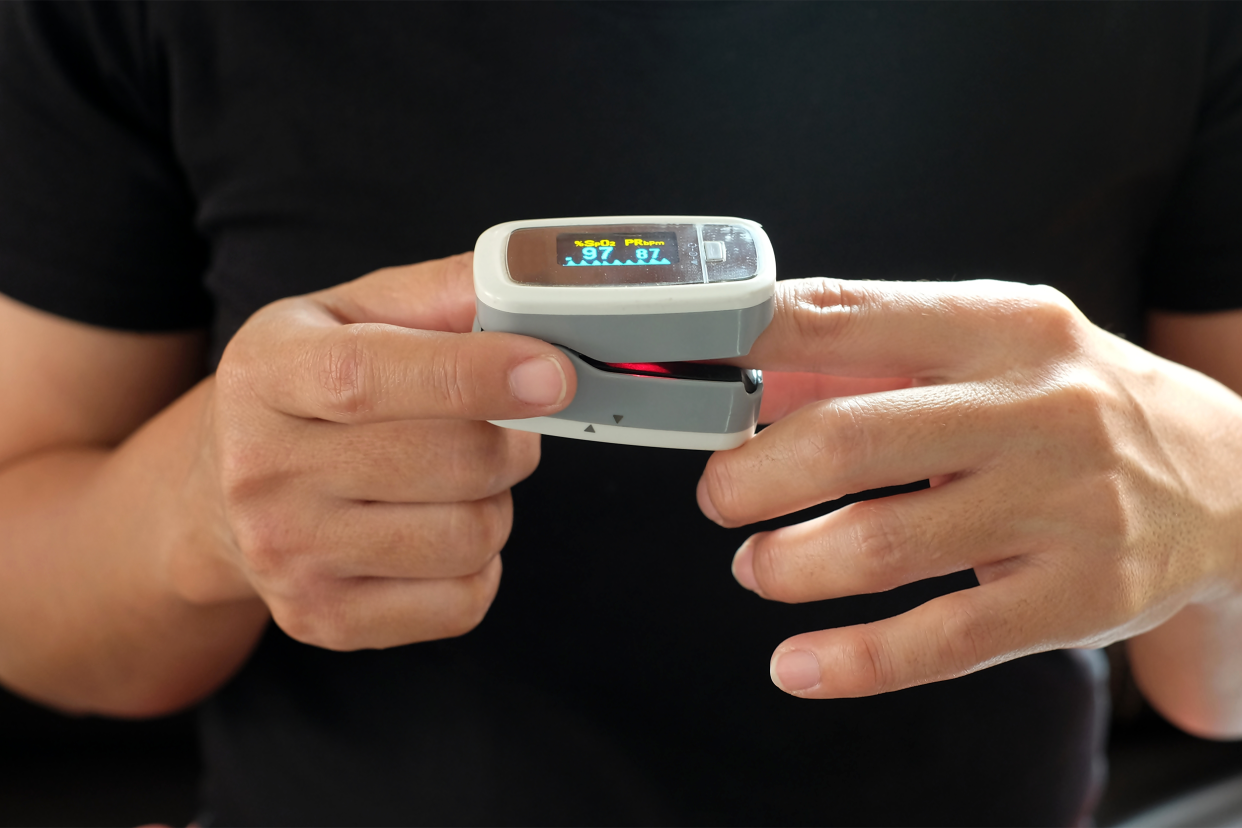
Do Pulse Oximeters Work?
Clipped to a fingertip, a pulse oximeter uses light beams to analyze your heart rate and the amount of oxygen being carried in your bloodstream. Normal levels in otherwise-healthy adults range between 95% and 100%, according to the World Health Organization and other experts, while a blood oxygen level of 92% or less may indicate a serious health issue and merit calling a doctor. The biggest consumer complaint about cheap pulse oximeters — the kind you'll find at drugstores and big retailers like Amazon or Target — is that they're not terribly accurate, something expert opinion and at least one study bear out. That's because they aren't required to meet federal safety, efficacy, and accuracy baselines for medical equipment. "There is no standardization," Dr. Denyse Lutchmansingh, a pulmonologist, tells Yale Medicine. "You are buying in good faith."
Related: 14 Telemedicine Services for Health Care at Home During the Pandemic

Should You Buy a Pulse Oximeter?
Doctors say checking blood oxygen levels at home is a way to monitor vital statistical trends over time for people who have already been diagnosed with COVID-19 or who live with chronic lung diseases such as emphysema or COPD. But that data is only so useful on its own, says Lex Schultheis, a research professor of bioengineering at the University of Maryland in College Park. "Even a pulse oximeter designated for medical use must be interpreted thoughtfully in the context of other physical signs, patient-reported symptoms, and health history," he tells Consumer Reports. "Otherwise, the information may be misleading."
Related: Sneeze Guards and Plexiglass Shields to Stay Safe at Work
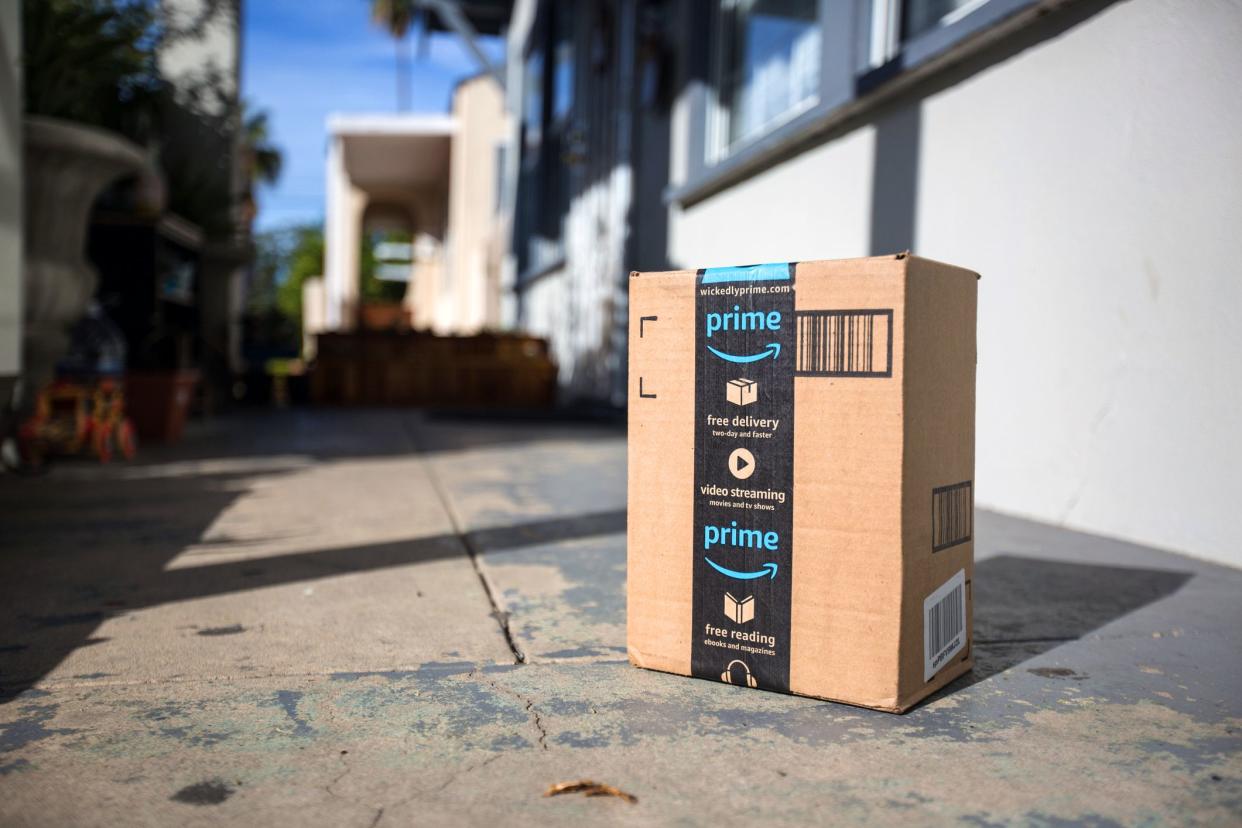
Recommended Pulse Oximeters
Prices for pulse oximeters range from about $30 for a cheap no-name model up to $300 or more for a professional model. Amazon and Walmart offer the greatest selection, but you can also buy cheap pulse oximeters at Target, Walgreens, and CVS. If you want a hospital-grade oximeter, you'll find those models at medical supply vendors. The following pulse oximeters get positive marks from professional testers, doctors, and consumers.
Related: How to Disinfect Without Harming Your Stuff (or Yourself)
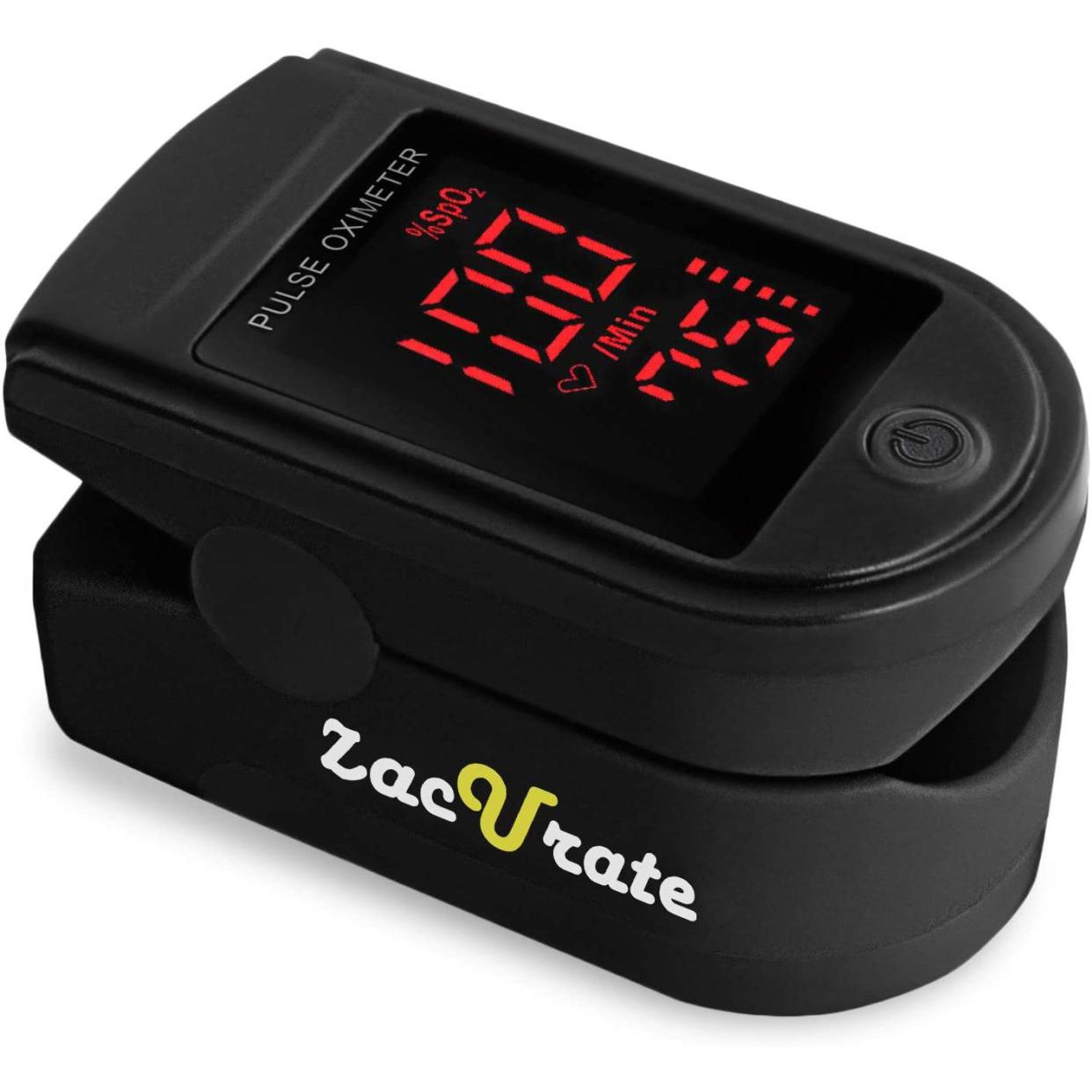
Zacurate Pro Series 500DL
Price: $30 from Amazon
Buy It
If you're going to buy a cheap pulse oximeter, this is one of the few that has been tested by reliable organizations, Best Reviews, and Retirement Living. Reviewers at Digital Trends say readings take about 10 seconds and the lighted display is easy to read. They also say results tended to be more consistent than other pulse oximeters they tested. Buyers reviewing it on Amazon (more than 9,800 of them) really love this cheap pulse oximeter, too, giving it an average review score of 4.7 out of 5, although a minority of users grouse about inconsistent readings and short battery life.
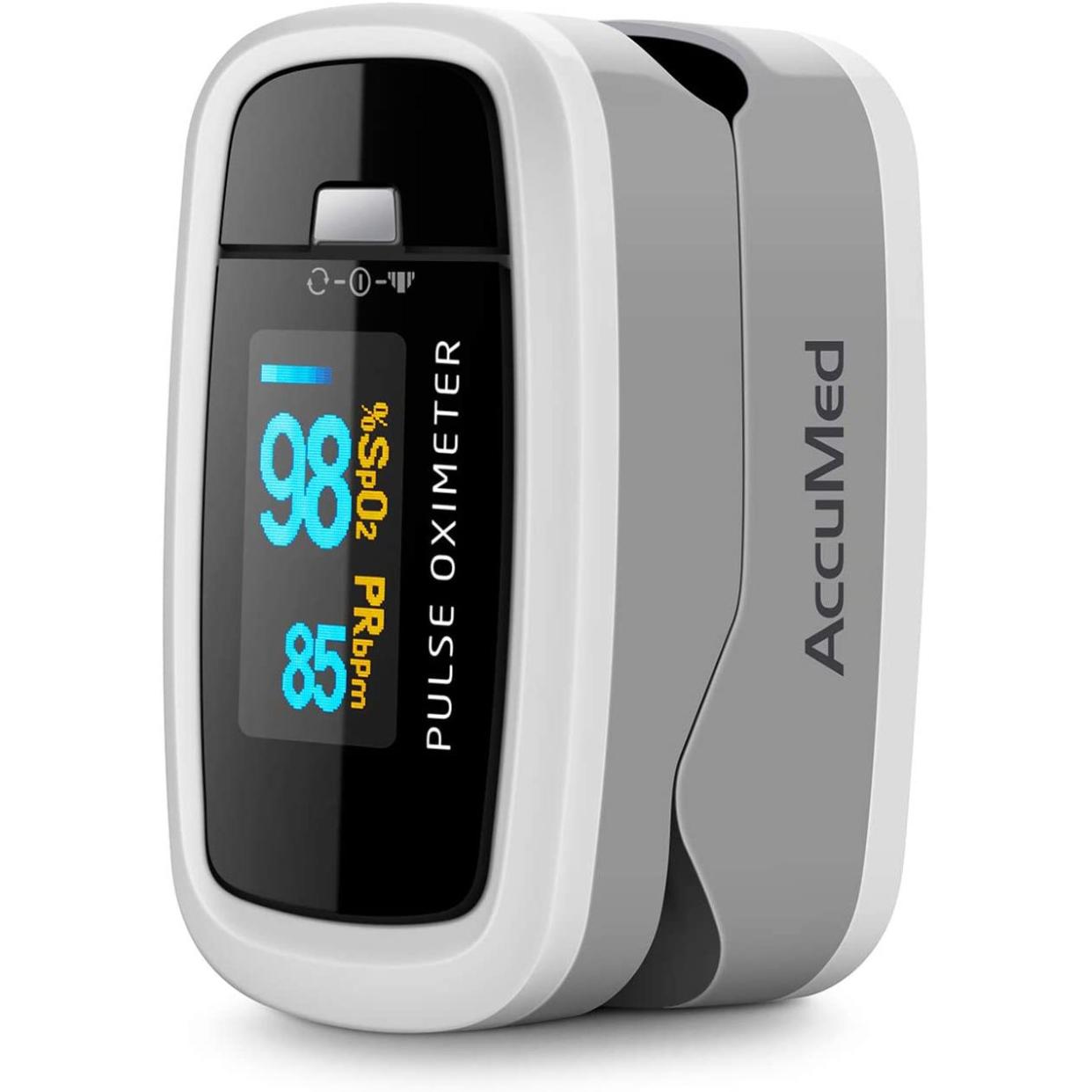
AccuMed CMS-50DL
Price: $33 from Amazon
Buy It
More than 1,800 Amazon customers have left comments about this pulse oximeter, giving it an average rating of 4.1 out of 5. It also earns recommendations from Verywell Health and Retirement Living for returning reliable, consistent readings in about 8 to 10 seconds. Reviewers, some of whom work in medicine, say the pulse oximeter is easy to use, although some complain that the digital display can be hard to read because it doesn't rotate (the numbers appear upside down to the person using the device).
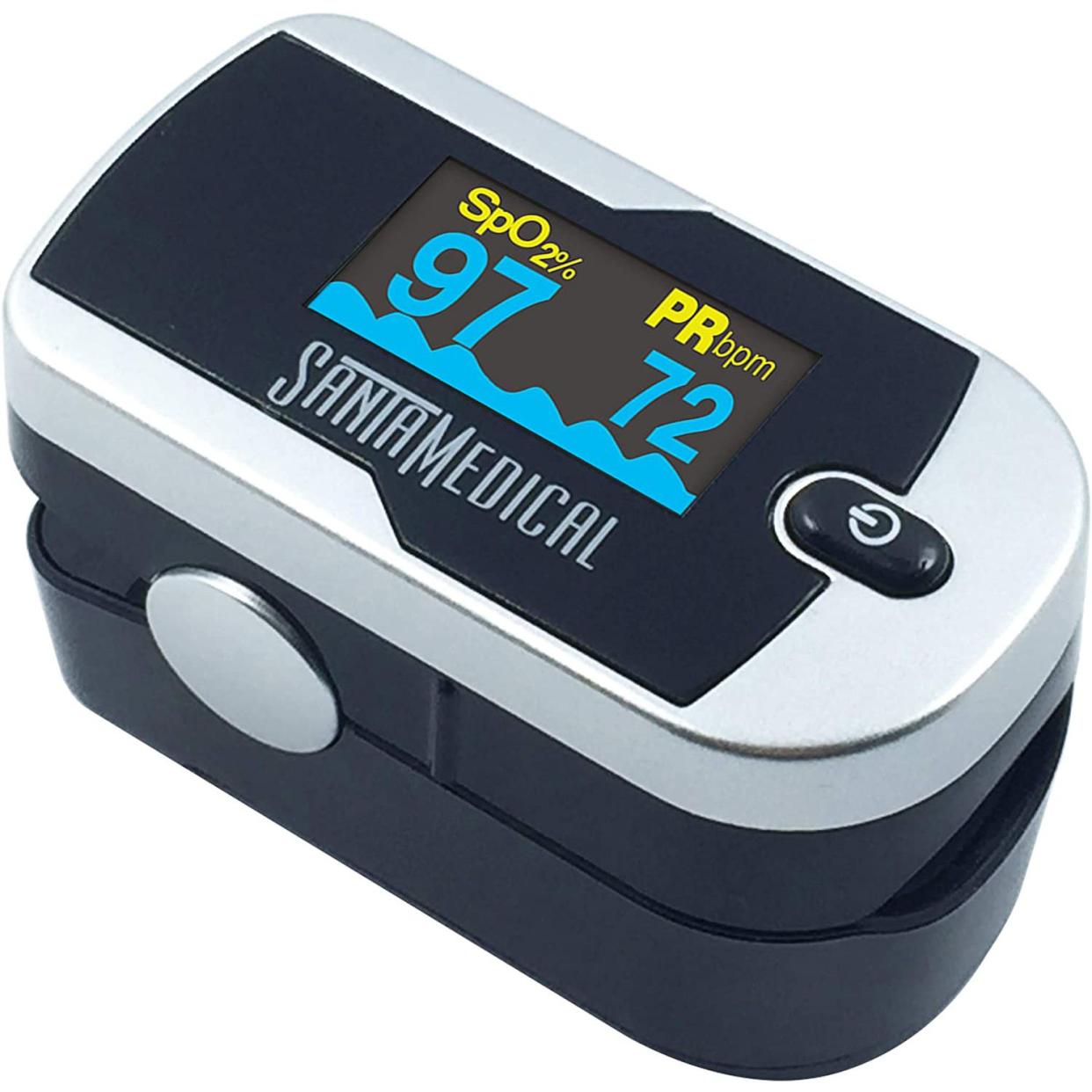
SantaMedical Generation 2
Price: $35 from Amazon
Buy It
There's not much difference between this pulse oximeter and other inexpensive models you'll find on Amazon. But this one stands out for the exceptionally high 4.8-star average rating it's received from more than 1,100 buyers, and the editors at Retirement Living give it their endorsement. Most owners have nothing but praise for this model, although a few point out that you have to keep still in order to obtain an accurate reading. The digital display is easy to read, buyers say, and the readout orientation can be adjusted so the numbers always appear right-side up. Although you do need to press a button in order to turn the unit on, it has an auto-off feature.
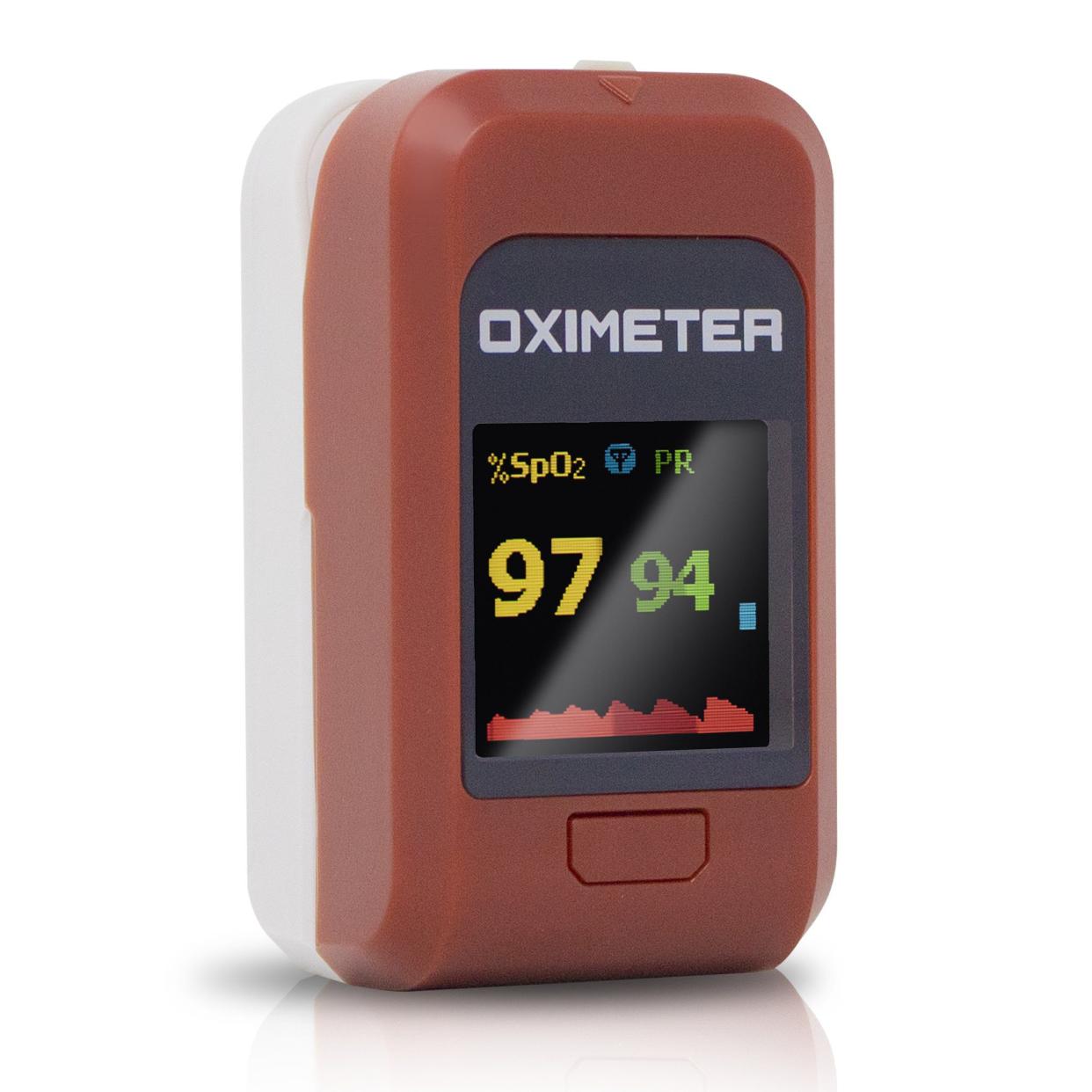
Nonin CM Fingertip Pulse Oximeter
Price: $99 from Nonin
Buy It
Nonin pulse oximeters are more expensive than models you'll find at drugstores and big-box retailers. But unlike many of those cheapie versions, Nonin pulse oximeters have received clearance from the U.S. Food and Drug Administration, meaning they must meet federal guidelines for accuracy. In addition to blood oxygen levels and pulse rate, this model also measures perfusion index (pulse strength), a vital statistic for anesthesiologists to monitor, but one that won't mean much to the average layperson.
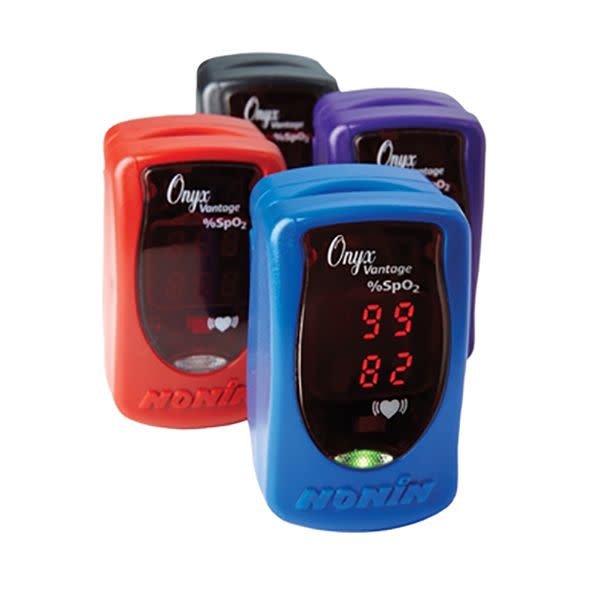
Nonin Onyx Vantage 9590
Price: $186 on sale from Concord Health Supply
Buy It
This hospital-grade pulse oximeter is on the pricey end of the spectrum — and it measures only blood oxygen levels and pulse rate. But it's been vetted for accuracy by a 2018 study published in the European Respiratory Journal (the editors at Wirecutter also name-check this pulse oximeter), and it turns on and off automatically, something cheap oximeters don't do. More than 400 buyers have left reviews on the Concord Health website, nearly all of them positive. Also worth noting: The U.S.-made Nonin device carries a four-year warranty, which is twice as long as the coverage period for other brands. And it's available in four colors.
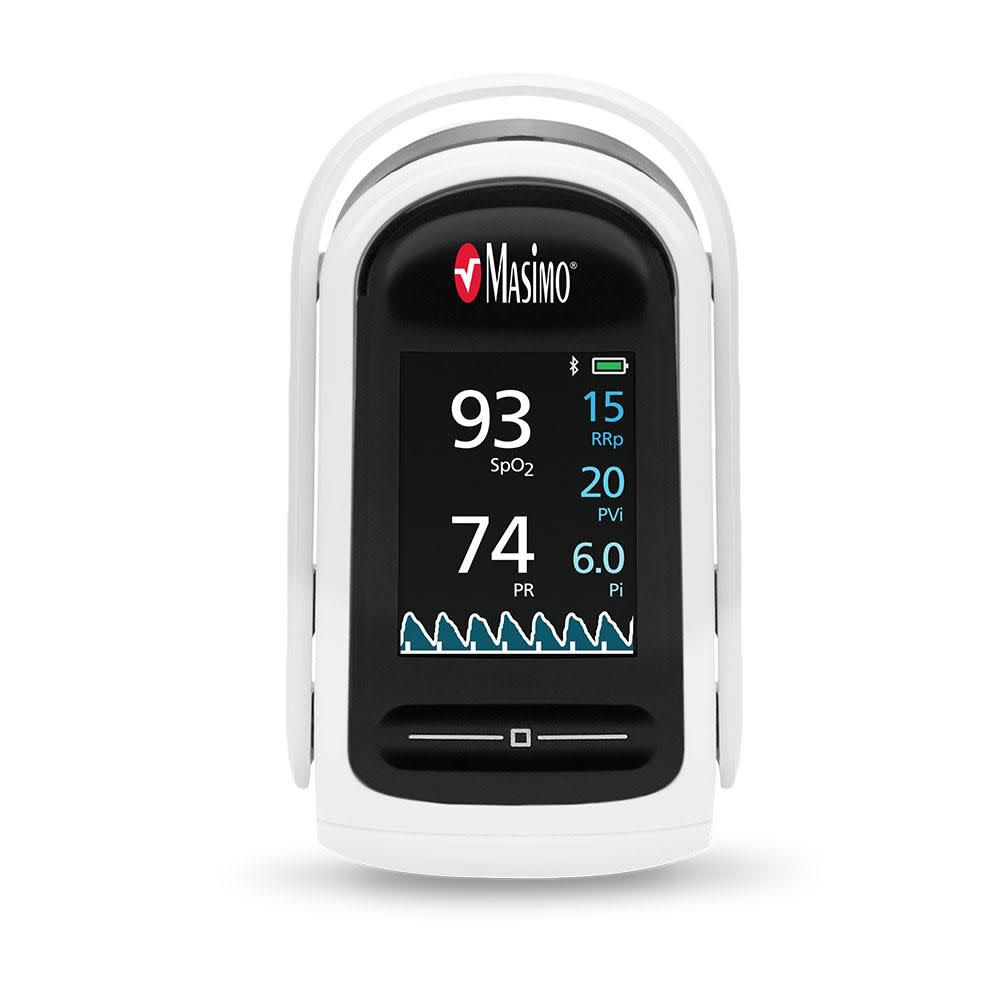
Masimo MightySat Fingertip Pulse Oximeter with Bluetooth LE
Price: $299 from Masimo
Buy It
If money is no object and you want a hospital-grade pulse oximeter that has been proven to work in rigorous peer-reviewed studies, this Masimo model is the one for you. It's Bluetooth-enabled, allowing it to send data to your phone with use of the Masimo app (it's also compatible with Apple Health), and the touch-sensitive display rotates automatically for legibility. Unlike cheaper pulse oximeters, the Masimo device also measures advanced vital statistics such as respiration rate, perfusion index (pulse strength), and pleth variability index (changes in the perfusion index, which can indicate underlying health problems).
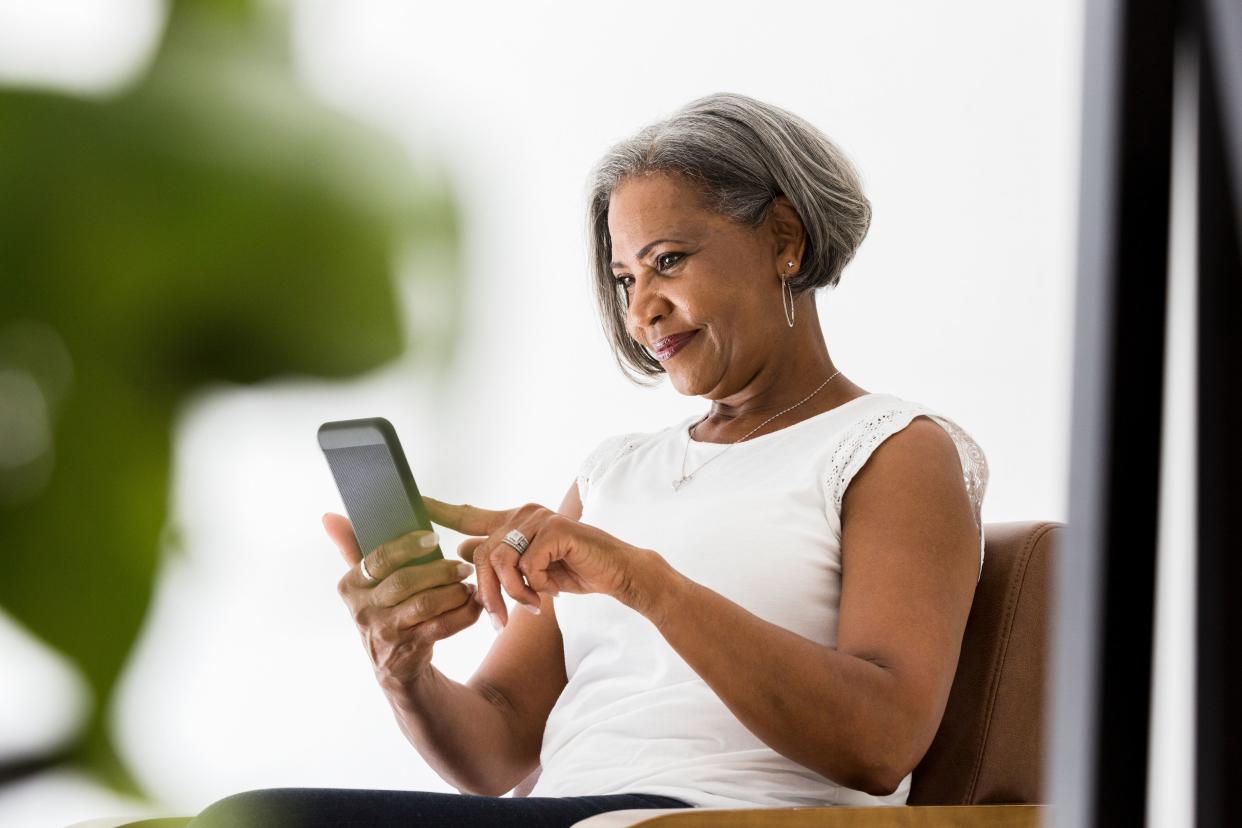
What About Pulse Oximeter Apps?
Don't waste your money, experts say. "One can always go the route of 'something is better than nothing,' but we don't know how accurate they are," says Yale pulmonologist Denyse Lutchmansingh.
Related: 19 Essential Items to Keep You Safe and Healthy as You Return to Work
